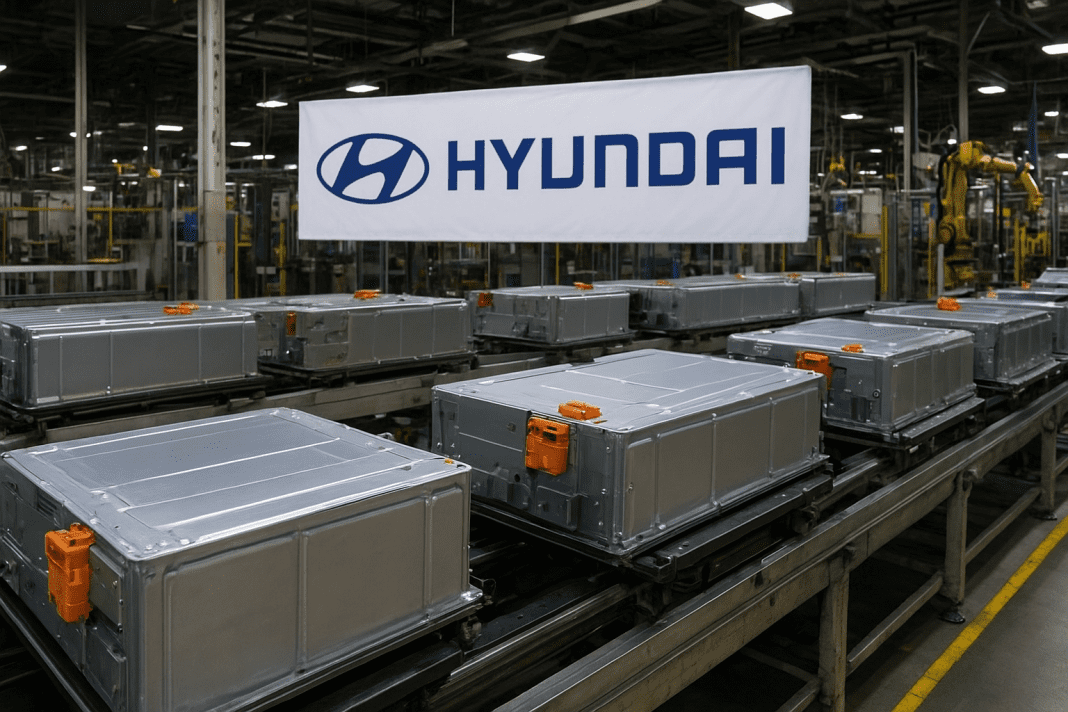The recent incident involving South Korean workers at the Hyundai battery plant in Georgia has caused deep concern across South Korea. The event began when U.S. Immigration and Customs Enforcement (ICE) officials conducted a surprise raid at the Hyundai site last month. Hundreds of South Korean engineers and technicians, who were sent to support the plant’s operations, were reportedly detained during the inspection.
Growing Tension After the Hyundai Raid
According to local media reports, these workers had traveled to the United States under official contracts to assist in building one of the largest electric vehicle battery manufacturing facilities in North America. The $350 billion investment pledge aims to strengthen U.S. manufacturing and boost clean energy jobs through Hyundai’s industrial expansion.
However, the U.S. immigration raid suddenly detained these workers, sparking a diplomatic issue between the two countries. South Korean officials expressed shock and accused U.S. authorities of giving “irrational treatment” to skilled workers who had traveled to help advance joint industrial goals. Images showing immigration agents handcuffing and questioning Hyundai engineers spread quickly online, adding emotional weight to the issue in South Korea.
Hyundai confirms $2.7 billion Georgia expansion after immigration raid raised investment concerns
Hyundai Workers Face Emotional and Family Strain
The South Korean government said the detention deeply shook many Hyundai workers. Authorities questioned some of them for long hours, even though they held valid work permits and were part of a government-approved project. The experience caused severe emotional trauma, and several Hyundai employees said they no longer wish to return to the United States.
Families of the affected workers described the situation as distressing. Many struggled to contact their relatives during the raid and did not know where officials were holding them. In several cases, authorities released the workers only after verifying their immigration documents and project contracts.
Hyundai Marine Faces Consequences for Fireworks Event During Jeju Air Tragedy
Officials in Seoul criticized U.S. authorities for detaining professionals who were working on a major Hyundai project. They said the action was inappropriate and damaged trust between the two nations. The workers, skilled in battery technology and manufacturing, came from Hyundai plants in South Korea to train U.S. teams and oversee the factory setup.
Following the raid, many have become reluctant to return, fearing further detentions. Labor groups in South Korea also raised concerns about the safety and fair treatment of Hyundai employees working in U.S. industrial projects.
Strain on Industrial Cooperation Between the U.S. and South Korea
The fallout from the Georgia raid has placed pressure on a large-scale cooperation plan between the United States and South Korea. The two sides had previously agreed to work together on clean energy production, semiconductor development, and advanced battery manufacturing. The Hyundai battery plant in Georgia was meant to be one of the flagship examples of this partnership.
But the recent incident has brought several challenges to light. Without reassurance over worker safety and fair treatment, officials warn that the construction and operation of the Hyundai plant may face significant delays. South Korean representatives have urged Washington to take steps to prevent such incidents from happening again.
Reports indicate that both sides are still struggling to finalize key details of the broader $350 billion investment pledge. The tension surrounding the ICE raid has added to those difficulties, with discussions now focusing not only on financial and technical cooperation but also on worker protection and immigration procedures.
South Korea questions US handling of Hyundai worker raid amid trade tensions
Observers say the incident shows rising tension in international labor relations, especially for skilled specialists working abroad. The U.S. has tightened immigration checks, applying stricter rules even to corporate and government-linked workers.
The enforcement action was reportedly tied to visa and employment verification, but the mass detentions and use of handcuffs drew criticism from South Korea, which says such actions damage trust. Seoul has requested a full explanation and called for clearer systems to manage foreign workers.
The Georgia raid involving Hyundai has highlighted the need for better coordination in major industrial projects between the two nations.
